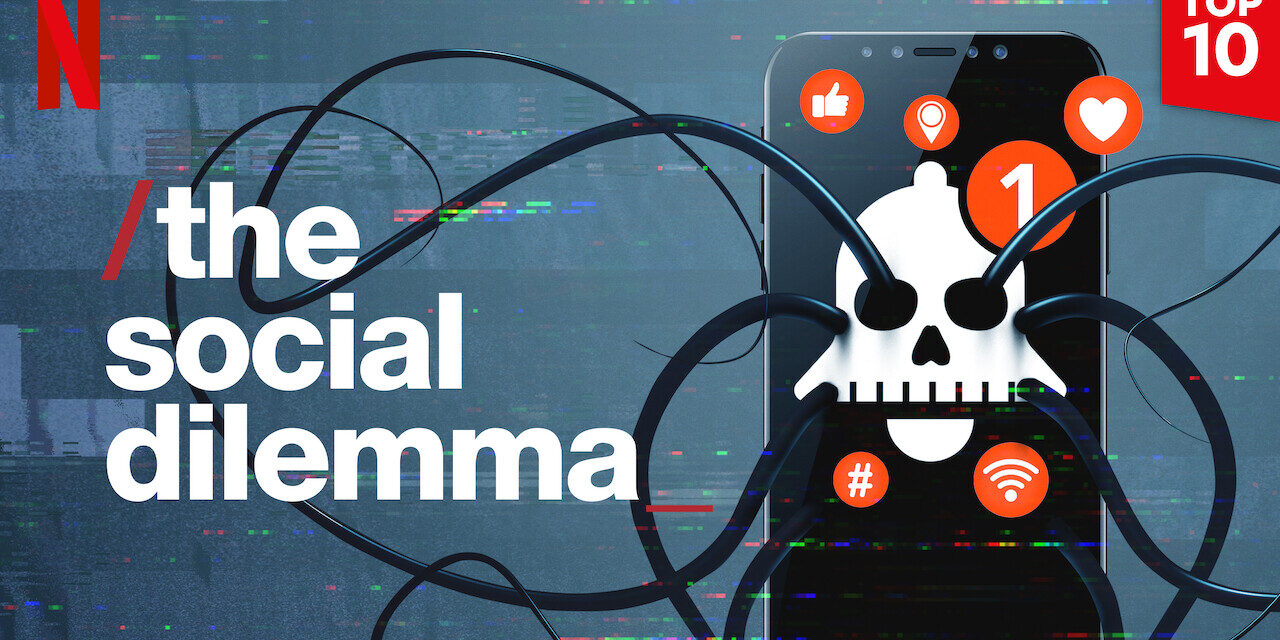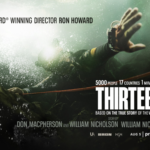Director: Jeff Oriowski
Featuring: Tristan Harris, Aza Raskin and other former Silicon Valley Tech Executives
The Social Dilemma, the docu-drama that premiered at Sundance before releasing on Netflix has a simple enough premise. By using social media, are we making a deadly deal with the devil? Arguing for this topic (the film stays largely on one side of the fence) are top former tech executives, who helped create many of these products that consume us today..sorry, that we consume today!
The film starts with a deliberation on ideas that are largely familiar. There is discussion around how no service is free and in using social media apps like Facebook, we ourselves become the ‘product’. These apps almost exclusively run on an advertising model and this much we were already aware of.
There is then a measured gradation in the ideas propounded. We are introduced to some high-brow jargons, like Surveillance Capitalism. It is not enough that our time on social media is monetized via advertisements, it’s also about how the amount of time we spend itself is maximized. This is achieved through rigorous data mining, use of Artificial Intelligence and UX designs that target borderline addiction. It is especially unnerving when a former Google executive confesses how massive research went in just to set the visual look of the GMAIL inbox in line with this objective.
Some consequences of social media’s ubiquity and influence, like reduction in quality family time or physical exercise are obvious. On a larger social scale, the advent of fake news and selective placement of content is more dangerous. It is demonstrated how this has been orchestrated to terrifying effect in the past, to sow public divide and influence elections.
On a very personal level, the social peer pressure created by these apps is immense. It is argued the effect is especially detrimental on kids and teenagers. The rise in demand for cosmetic surgeries among teenagers, who want their faces altered to resemble Snapchat filters is alarming and the steep rise in suicide rates among teenagers over the last decade, that coincides exactly with the graph of social media adoption is damning. The reason attributed is lack of mental maturity to cope with such pressures. To give a sense, the first time I registered on social media was when I was sixteen and about to graduate out of high school. The minimum legal age to create a Facebook account today as per US Federal law is only thirteen. And the problem is not just with the likes of Facebook. Youtube has a popular offering for children called ‘Youtube for kids’, where content is curated and made age appropriate. However, even this platform doesn’t spare the use of regular audience engagement gimmicks like ‘Recommended videos’ that are employed on kids to counterproductive effect.
‘Regulation’ seems to be the go-to word for most experts when quizzed about possible solutions. Most countries, including India where the PDP (Personal Data Protection) Bill has been tabled in Parliament recently, have recognized the necessity to play the role of a data watchdog. However, you sense just control over data wouldn’t suffice. The larger solution rests in also regulating the quasi-psychological approach brazenly adopted to gain eyeball traction.
The film has a parallel fictional track, where we witness the effects of social media obsession unfold on a typical American family. The effects on a teenager are especially profound, as he grapples with peer pressure first and finally ends up toeing the line of law. There is dark humour here, in the way Facebook (interchange with any other platform) is shown represented by three men hiding behind the boy’s phone screen, supplying notifications and alerts to awaken him from ‘digital slumber’ from time to time. This is oddly reminiscent of the trope adopted in the blockbuster animated film Inside Out, but works brilliantly in this context too.
The eeriest part about the film was listening to tech creators talk about how they couldn’t resist addiction to products they themselves had created. A former President of Pinterest talks about how he suffered through this phase and ultimately had to devise a set of house rules to help claw back on the habit. The closest reference I could relate this to was Gollum’s addiction to the ring in The Lord of The Rings!
What put a smile on my face once I finished with The Social Dilemma though, was how on the same platform Netflix, you could also catch The Social Network, David Fincher’s award-winning film about the origins of Facebook. Personally, I believe social media is here to stay and with some amount of regulation, we should succeed in overcoming its negative side effects. Perhaps once this is achieved, we could have a spiritual sequel here and make this also a trilogy like LOTR. Taking cognizance of the times we live in today, and the spirit of this film also, I think we should name the third film… ‘The Social Distance’!
Overall rating: 3/5










